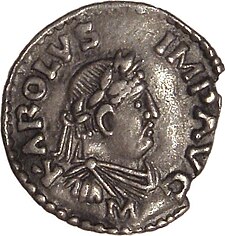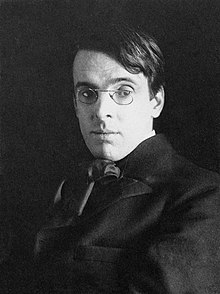January 28 is the 28th day of the year in the Gregorian calendar. There are 337 days remaining until the end of the year (338 in leap years).
Holidays
- Army Day (Armenia)
- Christian Feast Day:
- Data Privacy Day
In 661, The Rashidun Caliphate was effectively ended with the assassination of Ali, the last caliph.
In 814, Charlemagne, Roman emperor (b. 742) died. He is also known as Charles the Great (German: Karl der Große; Latin: Carolus or Karolus Magnus) or Charles I, was the King of the Franks from 768, the King of Italy from 774, and from 800 the first emperor in western Europe since the collapse of the Western Roman Empire three centuries earlier. The expanded Frankish state he founded is called the Carolingian Empire.

In 1069, Robert de Comines, the Earl of Northumbria, is killed while attempting to subdue rebels in Durham, England. This leads to the Harrying of the North by William the Conqueror.
In 1077, Walk to Canossa: The excommunication of Henry IV, Holy Roman Emperor is lifted.
In 1393, King Charles VI of France is nearly killed when several dancers’ costumes catch fire during a masquerade ball.
In 1521, The Diet of Worms begins, lasting until May 25. It was an imperial diet (a formal deliberative assembly) of the Holy Roman Empire called by Emperor Charles V and conducted in the Imperial Free City of Worms. Martin Luther was summoned to the Diet in order to renounce or reaffirm his views in response to a Papal bull of Pope Leo X. In answer to questioning, he defended these views and refused to recant them. At the end of the Diet, the Emperor issued the Edict of Worms (Wormser Edikt), a decree which condemned Luther as “a notorious heretic” and banned citizens of the Empire from propagating his ideas. Although the Protestant Reformation is usually considered to have begun in 1517, the edict signals the first overt schism.

In 1547, Henry VIII dies. His nine-year-old son, Edward VI becomes King, and the first Protestant ruler of England.
In 1568, The Edict of Torda prohibited the persecution of individuals on religious ground in John Sigismund Zápolya‘s Eastern Hungarian Kingdom.
In 1573, Articles of the Warsaw Confederation are signed, sanctioning freedom of religion in Poland.
In 1624, Sir Thomas Warner founds the first British colony in the Caribbean, on the island of Saint Kitts.
In 1701, The Chinese storm Dartsedo.
In 1724, The Russian Academy of Sciences is founded in St. Petersburg by Peter the Great, and implemented by Senate decree. It is called the St. Petersburg Academy of Sciences until 1917.
In 1754, Horace Walpole coins the word serendipity in a letter to Horace Mann.
In 1760, Pownal, Vermont is created by Benning Wentworth as one of the New Hampshire Grants.
In 1813, Jane Austen‘s Pride and Prejudice is first published in the United Kingdom.
In 1820, A Russian expedition led by Fabian Gottlieb von Bellingshausen and Mikhail Petrovich Lazarev discovers the Antarctic continent, approaching the Antarctic coast.
In 1823, The Jackson Male Academy announced that they would be open on the 1st of February. Union University was the heir of three antebellum Tennessee schools-West Tennessee College and its predecessor, Jackson Male Academy, both located at Jackson, and of Union University, located at Murfreesboro-and it is the inheritor of another college in 1927, Hall-Moody Junior College of Martin, Tennessee. Jackson Male Academy, founded in 1823 shortly after the opening of West Tennessee for settlement, was chartered by the legislature in 1825.
In 1821, Alexander Island is first discovered by Fabian Gottlieb von Bellingshausen.
In 1846, The Battle of Aliwal, India, is won by British troops commanded by Sir Harry Smith.
In 1851, Northwestern University becomes the first chartered university in Illinois.
In 1855, A locomotive on the Panama Canal Railway, runs from the Atlantic Ocean to the Pacific Ocean for the first time.
In 1871, Franco-Prussian War: the Siege of Paris ends in French defeat and an armistice.
In 1878, Yale Daily News becomes the first daily college newspaper in the United States.
In 1884, Dairy Convention opened at King’s Opera House and Tomlin Hall.
In 1887, In a snowstorm at Fort Keogh, Montana, the world’s largest snowflakes are reported, 15 inches (38 cm) wide and 8 inches (20 cm) thick.
In 1896, Walter Arnold of East Peckham, Kent becomes the first person to be convicted of speeding. He was fined 1 shilling, plus costs, for speeding at 8 mph (13 km/h), thus exceeding the contemporary speed limit of 2 mph (3.2 km/h).
In 1902, The Carnegie Institution of Washington is founded in Washington, D.C. with a $10 million gift from Andrew Carnegie.
In 1908, Members of the Portuguese Republican Party fail in their attempted coup d’état against the administrative dictatorship of Prime Minister João Franco.
In 1909, United States troops leave Cuba with the exception of Guantanamo Bay Naval Base after being there since the Spanish–American War.
In 1915, An act of the U.S. Congress creates the United States Coast Guard as a branch of the United States Armed Forces.
In 1917, Municipally-owned streetcars take to the streets of San Francisco.
In 1918, Finnish Civil War: Rebels seize control of the capital, Helsinki, and members of the Senate of Finland go underground.
In 1922, Knickerbocker Storm, Washington D.C.’s biggest snowfall, causes the city’s greatest loss of life when the roof of the Knickerbocker Theatre collapses.
In 1932, Japanese forces attack Shanghai.
In 1933, The name Pakistan is coined by Choudhry Rahmat Ali Khan and is accepted by the Indian Muslims who then thereby adopted it further for the Pakistan Movement seeking independence.
In 1934, The first ski tow in the United States begins operation in Vermont.
In 1935, Iceland becomes the first Western country to legalize therapeutic abortion.
In 1938, The World Land Speed Record on a public road is broken by Rudolf Caracciola in the Mercedes-Benz W195 at a speed of 432.7 kilometres per hour (268.9 mph).
In 1939, W. B. Yeats, Irish poet, Nobel Prize laureate (b. 1865) died. He was an Irish poet and one of the foremost figures of 20th century literature. A pillar of both the Irish and British literary establishments, in his later years he served as an Irish Senator for two terms. Yeats was a driving force behind the Irish Literary Revival and, along with Lady Gregory, Edward Martyn, and others, founded the Abbey Theatre, where he served as its chief during its early years. In 1923 he was awarded the Nobel Prize in Literature as the first Irishman so honoured for what the Nobel Committee described as “inspired poetry, which in a highly artistic form gives expression to the spirit of a whole nation.” Yeats is generally considered one of the few writers who completed their greatest works after being awarded the Nobel Prize; such works include The Tower (1928) and The Winding Stair and Other Poems (1929). Yeats was a very good friend of American expatriate poet and Bollingen Prize laureate Ezra Pound. Yeats wrote the introduction for Tagore’s Gitanjali, which was about to be published by the India Society.
In 1941, Franco-Thai War: Final air battle of the conflict. A Japanese-mediated armistice goes into effect later in the day.
In 1945, World War II: Supplies begin to reach the Republic of China over the newly reopened Burma Road.

In 1945, Roza Shanina, Female Soviet Sniper (b. 1924) dies after being severely wounded by a shell blast the day before. She was a Soviet sniper during World War II, credited with fifty-nine confirmed kills, including twelve soldiers during the Battle of Vilnius. Shanina volunteered for the military after the death of her brother in 1941 and chose to be a marksman on the front line. Praised for her shooting accuracy, Shanina was capable of precisely hitting moving enemy personnel and making doublets (two target hits by two rounds fired in quick succession). Allied newspapers described Shanina as “the unseen terror of East Prussia”. She became the first Soviet female sniper to be awarded the Order of Glory and was the first servicewoman of the 3rd Belorussian Front to receive it. Shanina was killed in action during the East Prussian Offensive while shielding the severely wounded commander of an artillery unit. Shanina’s bravery received praise already during her lifetime, but came at odds with the Soviet policy of sparing snipers from heavy fights. Her combat diary was first published in 1965.
In 1948, Therese Brandl, German concentration camp guard (b. 1902) is executed.
In 1948, Arthur Liebehenschel, German SS officer (b. 1901) is executed.
In 1948, Hans Aumeier, German SS officer (b. 1906) is executed.
In 1956, Elvis Presley makes his first US television appearance.
In 1958, The Lego company patents the design of its Lego bricks, still compatible with bricks produced today.
In 1958, The last episode of the British radio comedy programme The Goon Show is broadcast.
In 1960, The National Football League announced expansion teams for Dallas to start in the 1960 NFL season and Minneapolis-St. Paul for 1961 NFL season.
In 1964, An unarmed USAF T-39 Sabreliner on a training mission is shot down over Erfurt, East Germany, by a Soviet MiG-19.
In 1965, The current design of the Flag of Canada is chosen by an act of Parliament.

In 1973, John Banner, Austrian actor (b. 1910) dies. He was born Johann Banner, was a film and television actor, who was born and died in Vienna, Austria. He is best known for his role as Master Sergeant Hans Georg Schultz in the situation comedy Hogan’s Heroes (1965–1971). Schultz, constantly encountering evidence that the inmates of his stalag were planning mayhem, frequently feigned ignorance with the catchphrase, “I know nothing! I see nothing! I hear nothing!”
In 1977, The first day of the Great Lakes Blizzard of 1977, that dumped 10 feet (3.0 m) of snow in one-day in Upstate New York, with Buffalo, Syracuse, Watertown, and surrounding areas most affected.
In 1979, CBS News Sunday Morning debuts with original host and co-creator Charles Kuralt.
In 1979, Pope John Paul II starts his first pastoral visit to Mexico.
In 1980, USCGC Blackthorn collides with the tanker Capricorn while leaving Tampa Florida and capsizes killing 23 Coast Guard crewmembers.
In 1981, Ronald Reagan lifts remaining domestic petroleum price and allocation controls in the United States helping to end the 1979 energy crisis and begin the 1980s oil glut.
In 1982, US Army general James L. Dozier is rescued by Italian anti-terrorism forces from captivity by the Red Brigades.
In 1984, Tropical Storm Domoina makes landfall in southern Mozambique, eventually causing 214 deaths and some of the most severe flooding so far recorded in the region.
In 1985, Supergroup USA for Africa (United Support of Artists for Africa) records the hit single We Are the World, to help raise funds for Ethiopian famine relief.
In 1986, Space Shuttle program: STS-51-L mission – Space Shuttle Challenger explodes after liftoff killing all seven astronauts on board. I was designing a new plant layout that morning watching it live.
In 1986, crew of Space Shuttle Challenger
- – Gregory Jarvis, American captain, engineer, and astronaut (b. 1944)
- – Christa McAuliffe, American educator and astronaut (b. 1948)
- – Ronald McNair, American physicist and astronaut (b. 1950)
- – Ellison Onizuka, American engineer and astronaut (b. 1946)
- – Judith Resnik, American engineer and astronaut (b. 1949)
- – Dick Scobee, American pilot and astronaut (b. 1939)
- – Michael J. Smith, American pilot and astronaut (b. 1945)
In 1988, In R. v. Morgentaler the Supreme Court of Canada strikes down all anti-abortion laws, effectively allowing abortions in Canada in all 9 months of pregnancy.


In 1994, Hal Smith, American actor (b. 1916) dies. He was an American character actor and voice actor. Smith is best known as Otis Campbell, the town drunk on CBS‘s The Andy Griffith Show. Smith was also the voice of many characters on various animated cartoon shorts including the Owl in the first four original Winnie The Pooh shorts (the first three of which were combined into the feature film, The Many Adventures Of Winnie the Pooh). He is also known to radio listeners as John Avery Whittaker in Adventures in Odyssey. Smith died of a heart attack in his home on January 28, 1994.
In 1996, Jerry Siegel, American writer and illustrator, co-created Superman (b. 1914) dies. He also used pseudonyms including Joe Carter, Jerry Ess, and Herbert S. Fine, was the American co-creator of Superman (along with Joe Shuster), the first of the great comic book superheroes and one of the most recognizable of the 20th century. He was inducted (with Shuster posthumously) into the comic book industry’s Will Eisner Comic Book Hall of Fame in 1992 and the Jack Kirby Hall of Fame in 1993.
In 2002, TAME Flight 120, a Boeing 727-100 crashes in the Andes mountains in southern Colombia killing 92.
In 2006, The roof of one of the buildings at the Katowice International Fair in Chorzów/Katowice, Poland, collapses due to the weight of snow, killing 65 and injuring more than 170 others.

In 2007, Robert Drinan, American priest, lawyer, and politician (b. 1920) dies. He was a Roman Catholic Jesuit priest, lawyer, human rights activist, and Democratic U.S. Representative from Massachusetts. He was also a law professor at Georgetown University Law Center for the last twenty-six years of his life.
In 1970 Drinan sought a seat in Congress on an anti-Vietnam War platform, narrowly defeating longtime Representative Philip J. Philbin, who was serving on the House Armed Services Committee, in the Democratic primary. Drinan went on to win election to the House of Representatives, and was re-elected four times, serving from 1971 until 1981. He was the first of two Roman Catholic priests (the other being Robert John Cornell of Wisconsin) to serve as a voting member of Congress. Drinan sat on various House committees, and served as the chair of the Subcommittee on Criminal Justice of the House Judiciary Committee. He was also a delegate to the 1972 Democratic National Convention.
Drinan was the first member of Congress, in July 1973, to introduce a resolution calling for the impeachment of President Richard Nixon, though not for the Watergate Scandal that ultimately ended Nixon’s presidency. Drinan believed that Nixon’s secret bombing of Cambodia was illegal, and as such, constituted a “high crime and misdemeanor.” However, the Judiciary Committee voted 21 to 12 against including that charge among the articles of impeachment that were eventually approved and reported out to the full House of Representatives. As a member of the Judiciary Committee, Drinan played an integral role in the Congressional investigation of Nixon administration misdeeds and crimes. In 1980, Pope John Paul II unequivocally demanded that all priests withdraw from electoral politics. Fellow Democrat Father Robert John Cornell, who was seeking a rematch in Wisconsin, and Drinan complied and did not seek reelection.
In 2010, Five murderers of President Sheikh Mujibur Rahman of Bangladesh are hanged.
In 2016, Trump Avoids the Immigration Flip-Flopping Bloodbath,In the middle of Thursday night’s debate, Marco Rubio, Ted Cruz, Jeb Bush and Rand Paul spent about ten minutes trading accusations of inconsistency on immigration reform. It felt like the last ten minutes of The Departed, where almost every major character suffered a grievous injury.
In 2016, Blathering from the Press and Lt. Governor / Claims Creeptastic Texting Lawmaker Had Affair With Fellow Rep.
In 2016, The World Health Organization announces an outbreak of the Zika virus.
In 2017, District of Columbia council members introduced a new bill Tuesday to allow non-citizens the right to vote in local elections as a direct affront to the new Trump administration.




